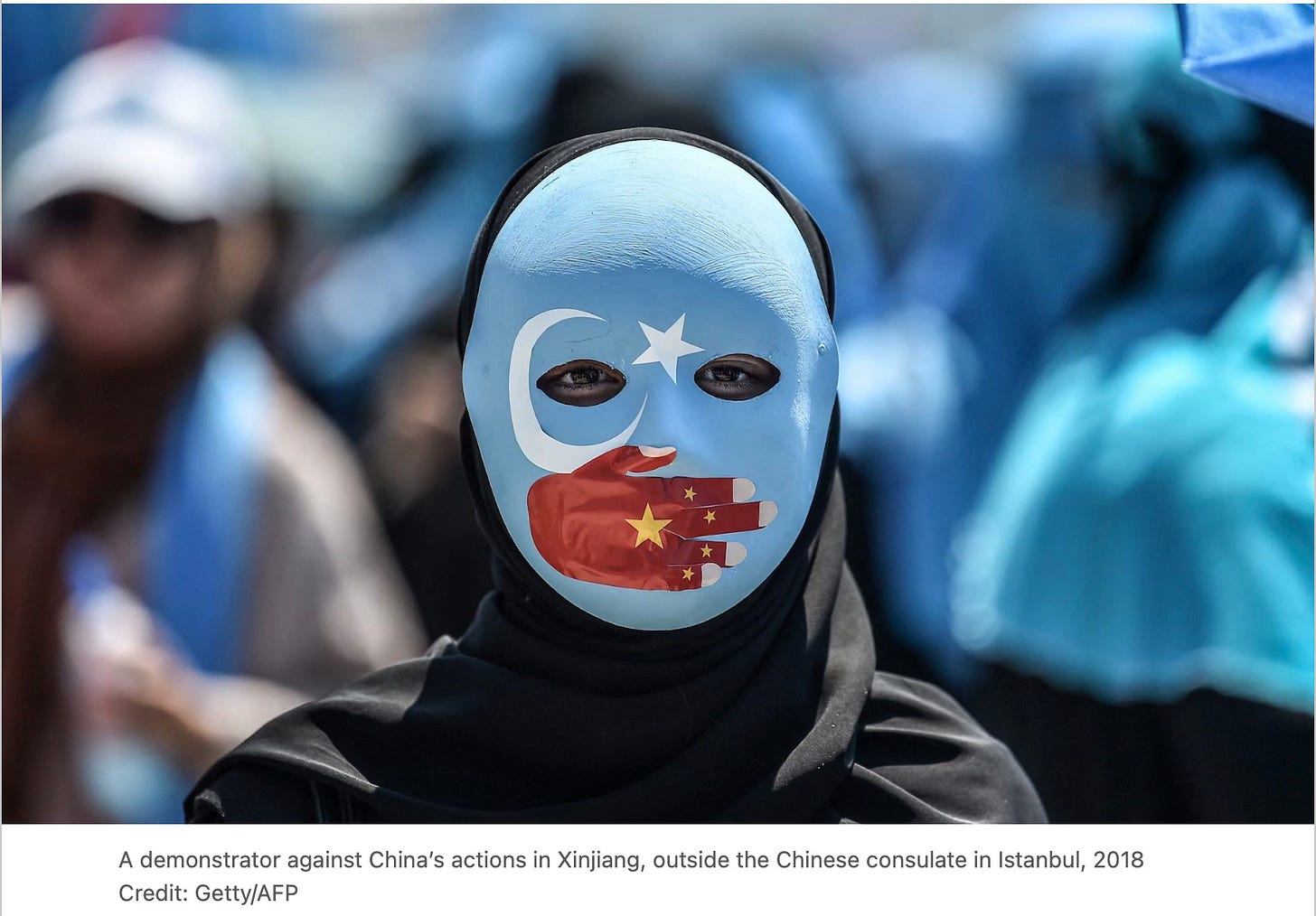Xinjiang is a glimpse of a very dark future
John Beck’s account of Uyghur life in China is a terrifying account of the testing-ground for cutting-edge technological evil
Beck doesn’t moralise, he documents. His narrative, a tapestry of firsthand accounts, Party memoranda and state propaganda, lays bare the architecture of a modern gulag. We read of teenagers hauled into “tiger chairs” for constraint and torture, of children taught to fear books, of scholars imprisoned for writing in Kazakh. We are introduced to a place where growing a beard or teaching a Koranic verse is treated as terrorism, and classification by race and religion is the law. This isn’t ancient history. This is 2025.
In Parliament, and in this newspaper, I have long argued that Britain must confront the reality of China’s government, and not be distracted by trinkets. Beck’s book is not about policy – but it demands one. For, as we debate trade deals and supply chains, his pages remind us that our choices have consequences. Consider this: many of the cotton garments sold on British high streets today pass through Xinjiang. The solar panels Ed Miliband visited Beijing in March to source, in order to power our so-called “green transition”, are built, in part, by detainees in factories powered by coal. And the very chips in our smartphones are manufactured using rare earths mined from land stripped from Uyghur hands. We are, however unknowingly, underwriting slavery. How does that meet anyone’s environmental, social or governance principles?
Totalitarian systems don’t just imprison the body, but also colonise the mind
The Chinese state weaponises basic human instincts. Family ties become vulnerabilities to exploit. Cultural identity becomes evidence of “extremism”. Even the desire for economic advancement becomes a trap, as Saira, a Kazakh from Urumqi who buys into the Chinese dream even joining foreign trips promoting the government’s commercial interests until she discovers her business success marks her as a threat to the state.
Beck captures something essential about totalitarian systems: they don’t just imprison the body, but also colonise the mind. We witness this in the trauma of Tursunay, a Uyghur woman who spent five years in Kazakhstan and was imprisoned on the grounds of suspected foreign affiliations and ideological deviation. Upon her release, she initially refuses to speak out about her experiences, having internalised the regime’s threats. We see it in the way camp survivors struggle with basic tasks after their release, their concentration and memory permanently damaged by what they endured.
China’s efforts at silencing not just critics but different minority groups, are terrifyingly advanced. Beck’s narrative uncovers the methods of control being perfected in Xinjiang: digital surveillance through mandatory apps, biometric data collection disguised as healthcare. Particularly chilling is the documentation of how the tentacles of Chinese state security reach far beyond national borders. Uyghur and Kazakh diasporic communities in Kazakhstan, Turkey and even America face surveillance, intimidation and the agonising knowledge that speaking out could result in reprisals against family members still in Xinjiang. The Chinese embassy protests described in the book’s final pages – where survivors such as Tursunay stand in silent witness as diplomatic vehicles with tinted windows roll past – serve as a powerful metaphor for the global community’s failure to meaningfully confront these abuses.
Xinjiang is a prototype: a test run for a surveillance state powered by AI, justified by nationalism, and perfected in the absence of dissent
We must also wake up to the deeper threat. What is happening in Xinjiang is not just an assault on a people. It is a prototype: a test run for a surveillance state powered by AI, justified by nationalism, and perfected in the absence of dissent. Beck holds a mirror to that future, and the reflection should chill us into action. As legislators, we owe it to those already lost. As Britons, we owe it to our values. And as free people, we owe it to ourselves.
Tom Tugendhat is the former Security Minister and chaired the Foreign Affairs Select Committee. Those Who Should Be Seized Should Be Seized is published by Melville House at £25. To order your copy, call 0330 173 5030 or visit Telegraph Books





